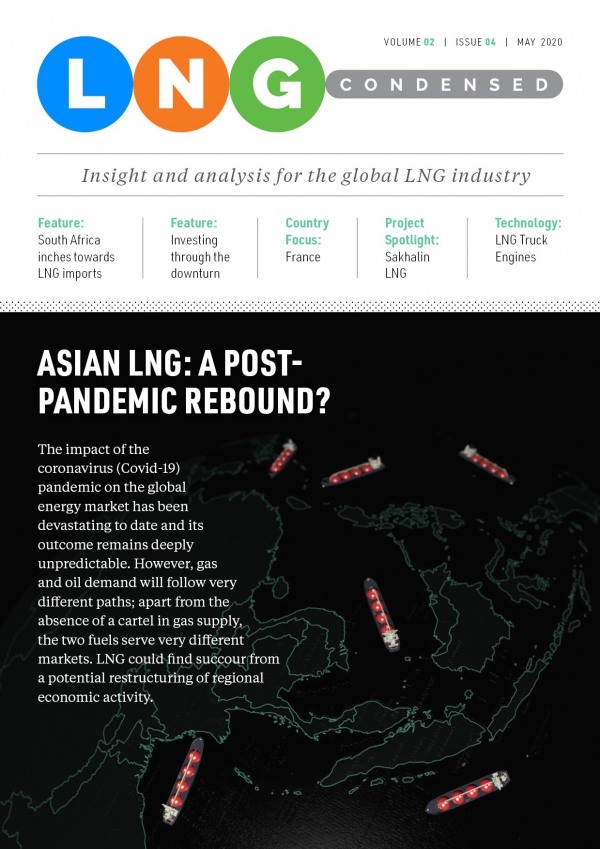LNG Condensed May 2020 Now Available
Available Exclusively to NGW Subscribers:
Volume 2, Issue 4 - June 2, 2020
If you are an NGW Subscriber you can access LNG Condensed here.
|
LNG Condensed brings you independent analysis of the LNG world's rapidly evolving markets. Covering the length of the LNG value chain and the breadth of this global industry, it will inform, provoke and enrich your decision making. Published monthly, LNG Condensed provides original content on industry developments by the leading editorial team from Natural Gas World. LNG Condensed is your magazine for the fuel of the future. Sign up to NGW Basic FREE or to NGW Premium now to receive LNG Condensed monthly (you will find every issue of LNG Condensed in your subscriber dashboard)
|
In this Issue:Editorial: Getting greener no longer costs the earth LNG has to take on coal and win fast, expanding its markets rapidly over the next decade and placing itself at the centre of greenhouse gas emissions reduction efforts. Asian LNG: a post-pandemic rebound? The impact of the coronavirus (Covid-19) pandemic on the global energy market has been devastating to date and its outcome remains deeply unpredictable. However, gas and oil demand will follow very different paths; apart from the absence of a cartel in gas supply, the two fuels serve very different markets. South Africa inches towards LNG imports Successive South African governments have suggested gas could play a much bigger role in the country’s energy mix, but enthusiasm for the fuel has wavered over the years. Now, however, the failings of state-owned power utility Eskom are prompting a rethink. Moreover, Total’s recent Brulpadda gas and condensate discovery could encourage both gas use and LNG imports, as the country’s existing gas fi elds decline. Investing through the downturn Qatar and Russia are pushing forward with their LNG expansion plans, while the rest of the world adopts a slow steam approach. This may concentrate new capacity in Russian and Qatari hands once the current wave of US construction has run its course, but the risk of LNG market cartelisation remains remote. Country Focus: France France’s LNG imports rocketed to an all-time high last year as gas-fi red power generators jumped on low prices and a drop in coal, nuclear and hydro generation. Gas and power demand have been battered by the coronavirus this year, and gas will likely be squeezed in future by rising renewable energy capacity, but the uncertain outlook for France’s huge nuclear fl eet means LNG could sustain a larger footprint in the French gas market than in the past. Project Spotlight: Sakhalin LNG When the Sakhalin II LNG plant came into operation in 2009, its current owners – Gazprom (50% plus one share, Shell (27.5% minus one share), Mitsui (12.5%) and Mitsubishi (10%) – would probably not have predicted that 11 years later its cargoes of LNG would be selling at less than $2/mn Btu, but that was the result of a tender awarded in early May for June delivery. Technology: LNG Truck Engines LNG as a trucking fuel is a potential new weapon in the fi ght against climate change, but not everyone is convinced. Once again, the methane versus carbon emissions debate rears its head. Critically, LNG trucking’s economics depend to a large degree on preferential fuel tax regimes, which in turn often refl ect environmental performance. |
|---|





